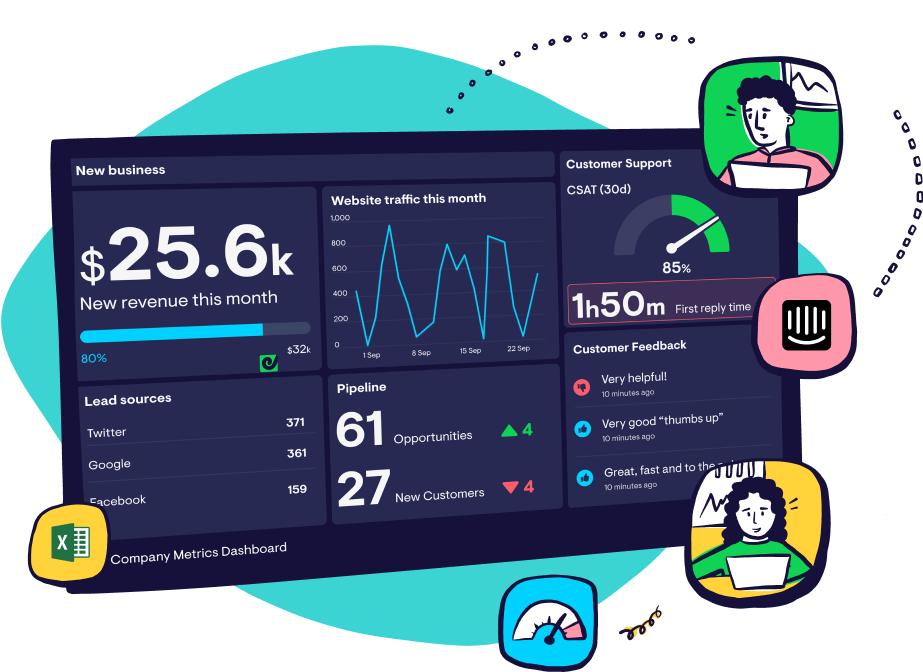For this episode of Secrets for Scaling, we chatted with Perry Oostdam, Co-Founder and CEO of Recruitee - a SaaS product making it easier to hire a team and grow your business. Founded in August 2015, Recruitee now has over 2,000 SME customers with a team of 15 and growing.
Perry met his co-founder Paul on a site specifically for finding co-founders. They started out with a gaming company called GeoRun but they found themselves more interested in their side project, which was a better fit for their team’s passions and skills. Hear their full story below!
*Like this episode? Subscribe to Secrets for Scaling on Soundcloud or iTunes to be notified when the latest episodes are available!*
Episode Highlights
Pay attention to the skills you have on your team. Your team’s skills might drive a pivot or new features that lead to a more successful, scalable business. A team is going to be more empowered if they’re leveraging and expanding on their strongest skills.
Start as lean as possible with inbound marketing. Most of Recruitee’s leads come from inbound marketing, but a lot of thought has gone into their strategy. A content marketer was their first hire. They test a new channel or tactic every month, measuring traffic, sign ups, volume of paying users, and the value of those users to decide which to scale up or to cut off.
Give back to the community. Recruitee analyzes their own data and makes their insights public, sharing things like which job boards work best and where to source candidates, as well as tricks and tips for saving money in the hiring process. Though they do this to be genuinely helpful, it also generates brand awareness and builds trust, leading to potential customers.
Use paid ads to boost your organic content. Recruitee boosts traffic on content that’s already performing well organically to get extra eyes on it. Take time to research who’s engaging with the content organically, then target a similar audience with shared interests.
If you have an idea, get your hands dirty and get on the phone. In the early days, Perry and Paul made cold sales calls, telling everyone they could about their product until they were seeing better results from inbound. Perry suggests speaking to 200-300 potential customers before launching. That way, you’ll get used to hearing no. Tough skin is an important quality for founders. You’ll also gauge reactions to your idea so that you can refine it to fit people’s needs.
To scale, you have to let go of control. You’re not going to grow if you try to do everything yourself. Perry says you have to trust your team and give people ownership of certain parts of the business. Make sure to assign each a few key metrics and track progress with them to maintain that motivation, trust, and focus.
Set ambitious goals and metrics. Try to push your targets out of your realistic comfort zone. Metrics you’re a bit uncomfortable with will keep you in a bootstrapping and motivated mindset. This is similar to what’s suggested in the OKR framework.
Have your team hire and delegate. The true secret to scaling a skilled team who works well together is to empower your leadership team to make their own hires and delegate as they see best. Let them hire people they will work well with.
Consider a collaborative approach to hiring. Recruitee has watched teams become more proactive and collaborative in recruiting - as a general trend. Companies are asking their staff for referrals and getting team members involved in the recruitment, interview, and hiring processes. This leads to a better success rate for finding people who are a cultural rate.
Routine is crucial for remote workers. With a quarter of the team working remotely, Recruitee has found that you have to be more careful that remote employees don’t overwork, rather than visa versa. To overcome this, they encourage remote team members to have a routine. They also check in regularly on Slack and in calls to see how things are going.
Structure everything the same for remote and in-office employees. Make sure all team members - remote or in-office - are using the same communication processes and tools so that remote team members don’t miss anything.
